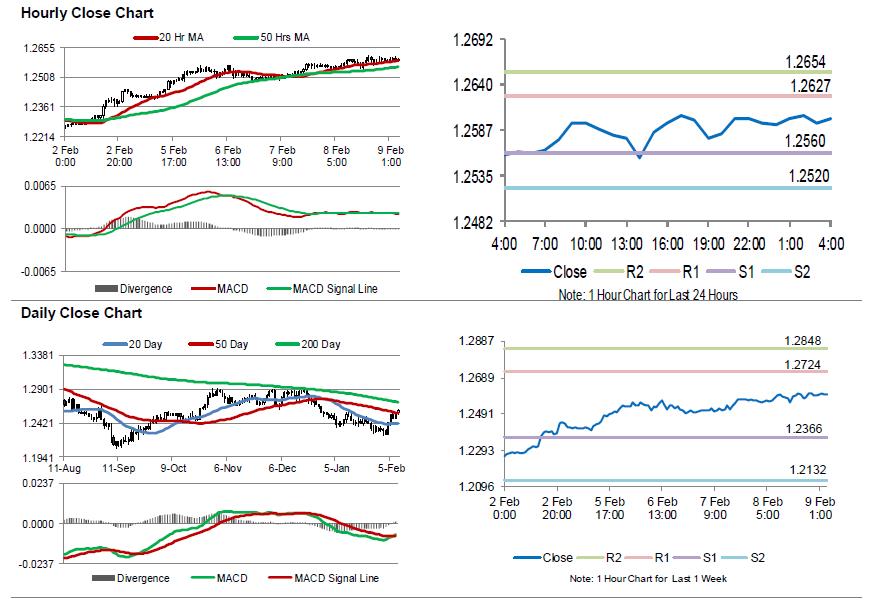For the 24 hours to 23:00 GMT, the USD rose 0.32% against the CAD and closed at 1.2595.
On the data front, Canada’s seasonally adjusted housing starts fell less-than-anticipated to a level of 216.2K in January, compared to a revised reading of 216.3K in the previous month. Markets were expecting housing starts to ease to a level of 210.0K. Additionally, the nation’s new housing price index remained flat on a monthly basis in December, against market expectations for an advance of 0.1%. In the prior month, the index had recorded a rise of 0.1%.
In the Asian session, at GMT0400, the pair is trading at 1.2600, with the USD trading a tad higher against the CAD from yesterday’s close.
The pair is expected to find support at 1.256, and a fall through could take it to the next support level of 1.2520. The pair is expected to find its first resistance at 1.2627, and a rise through could take it to the next resistance level of 1.2654.
Ahead in the day, investors would monitor Canada’s unemployment rate data for January, to gauge the strength in Canadian labour market.
The currency pair is showing convergence with its 20 Hr moving average and trading above its 50 Hr moving average.

